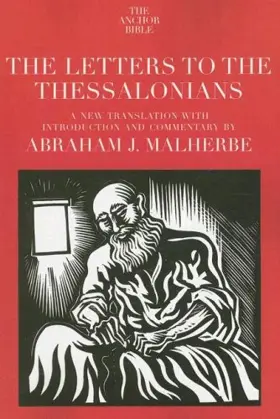

The Letters to the Thessalonians
Pages
528
Publisher
Yale University Press
Published
1/1/2000
ISBN-13
9780300139846
In A.D. 49, Paul traveled to Thessalonica, a major city in northern Greece, to preach the gospel. A small group of manual laborers responded positively to his message, resulting in the formation of a church. After spending less than three months with his converts, Paul left the city for southern Greece, ending up in Corinth, from where he wrote two letters to the Thessalonians four months or so after he had left them. These epistles are particularly valuable because they reveal the concerns of Christians new to the faith and Paul’s pastoral care as he guides them.
Abraham J. Malherbe vividly describes the social, cultural, religious, and philosophical contexts in which the Thessalonians lived, enabling us to better understand Paul’s missives. Detailed introductions to the letters, a new translation, and a lively, enlightening commentary make this an indispensable volume for scholar and layperson alike.
Abraham J. Malherbe vividly describes the social, cultural, religious, and philosophical contexts in which the Thessalonians lived, enabling us to better understand Paul’s missives. Detailed introductions to the letters, a new translation, and a lively, enlightening commentary make this an indispensable volume for scholar and layperson alike.
Collections
This book appears in the following featured collections.
- Favorite Advanced NT Commentaries by Jeremy Pierce (parableman)
- Ultimate Commentary Collection: NT Technical by John Glynn
- Essential Pauline Commentaries by Marcus Maher
- The Pastor’s Bookshelf by Scot McKnight
- New Testament Commentaries & Monographs by Princeton Theological Seminary
- Recommended New Testament Commentaries for Evangelical Pastors by Thomas R. Schreiner
Reviews
Malherbe spent a career making significant academic contributions on 1-2 Thessalonians, especially in relation to the Greco-Roman world.
[Full Review]
Malherbe’s commentary is a detailed exegetical commentary that takes seriously forms of ancient letter writing. He presents Paul as a model letter-writer who follows the standard forms of letter writing in the Greco-Roman world. He illustrates this throughout the commentary by citing other letters that have similar rhetorical style or vocabulary to 1 Thess. His knowledge of this literature is encyclopedic, yet it is not too distracting to the reader interested in Paul’s meaning these letters. This is true even in discussion the “rapture” in 1 Thess 4:17, where he illustrates the use of the word harpazo in non-biblical Greek by Cicero and Seneca. I find his comments on this apocalyptic section excellent, since he works very hard to show how the Rapture (whatever it is) was intended as a consolation for the church, not a scare-tactic to keep the behaving properly. This is a very readable expert-level commentary, with Greek appearing in transliteration.
Noteworthy commentary by a mainline scholar known for his skill in placing NT writings in the context of classic Greco-Roman literature. This commentary builds on earlier work that Malherbe had done on Thessalonians.
[Full Review]
Malherbe’s commentary is a detailed exegetical commentary that takes seriously forms of ancient letter writing. He presents Paul as a model letter-writer who follows the standard forms of letter writing in the Greco-Roman world. He illustrates this throughout the commentary by citing other letters that have similar rhetorical style or vocabulary to 1 Thess. His knowledge of this literature is encyclopedic, yet it is not too distracting to the reader interested in Paul’s meaning these letters. This is true even in discussion the “rapture” in 1 Thess 4:17, where he illustrates the use of the word harpazo in non-biblical Greek by Cicero and Seneca. I find his comments on this apocalyptic section excellent, since he works very hard to show how the Rapture (whatever it is) was intended as a consolation for the church, not a scare-tactic to keep the behaving properly. This is a very readable expert-level commentary, with Greek appearing in transliteration.
[Full Review]
Thoughtful commentary characterized by Malherbe's attention to Greco-Roman philosophical parallels.







